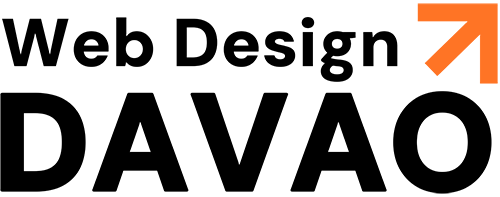The major Google algorithm update in 2018 was indicative of Googles increasing focus on ‘Trust’ as a significant factor in website promotion in search engine results. The Three Pillars, Expertise, Authority and Trust (E.A.T.) form the foundation of search engine optimisation (S.E.O). These vital elements are essential to any S.E.O strategy.
Much like any smart business owner, Google ultimately wants to give its customers the best service possible. To be favoured by Google, businesses should advertise their expertise and authority within their industry and demonstrate a high level of trust in their brand on their website. This ‘favour’ is rewarded with an increase in brand trust by the target audience.
As well as E.A.T, Google added yet another acronym to their list, Your Money or Your Life (Y.M.Y.L) which is a website/ landing page classification. As per Googles ‘Search Quality Evaluator Guidelines’, some web pages are considered to be of more value and importance than others. The quality of Y.M.Y.L pages could potentially have a massive impact on your audiences current or future wellbeing. Google cares about the ‘quality’ of the content that it’s delivering, i.e. not only should it be relevant, but now there is an increased emphasis on the correctness of the content. Low-quality content has the ability to significantly impact not only a users wellbeing but the wellbeing of their business too. In particular, Google does not want to deliver search results that contain fraudulent website links or uneducated advice.
By raising the bar, Google is making a statement that it will not recommend sites that demonstrate a lack of expertise, authority and trustworthiness (E.A.T). So, if you are in the business of health, wealth or happiness, then it would pay to E.A.T well.
Both E.A.T and Y.M.Y.L were born of Googles Search Quality Evaluator Guidelines in 2015. These guidelines provide valuable insight into what Google considers to be a ‘high-quality’ or ‘low quality’ website. The Google ranking algorithm is continuously evolving, and Google updated the guidelines in 2018 with some changes that made a huge impact. Now Google evaluators would not only avidly review a websites E.A.T, but would also evaluate the content creators E.A.T too. Simply speaking, they want you to put your money where your mouth is! You have to earn Googles respect.
Google now recognises and responds favourably to the author of a pages main content, especially if it’s a Y.M.Y.L website. For this reason, SEO strategies should combine the authors E.A.T and website E.A.T for maximum results. Author bio boxes and links to the author’s professional profiles are a great way to build favour with Google and help recognise the author’s authority in the area of expertise.

Author bio boxes promote the individual’s skills and ideally shares the website authors credentials as well as their professional links to social media.
The Recipe For E.A.T
Now that we have ascertained the importance of E.A.T, we now need to break it down to fully understand what it means.
Expertise
Expertise can be defined as having a high level of knowledge or skill is a particular area or field. Expertise is a high-value commodity, but without ‘expert’ communication, it’s worthless. Communicating your expertise is essential, you must not only demonstrate your superior knowledge, but you must also understand your audience intimately. Ultimately, you must understand what information your audience wants and how they want to receive the information.
What Is Expert Content and How Do We Create It?
Expert content should meet and exceed an audience’s expectations, but to do this, you first need to understand what it is they are searching for. Extensive keyword research will reveal exactly what your searchers ‘intent’ and ‘aim’ is and what it is that they are trying to achieve. Seek to first ‘know’ your audience. Search terms for consumers who are new to the subject matter should be informative but should contain simple language that anyone can understand. You should then try to pre-empt what the searcher might ask for next and offer complimentary linked content accordingly. It’s no easy task being a mind reader and a fortune teller at the same time, but that is what is needed to deliver expert content to a discerning audience.
Given the heightened focus on Y.M.Y.L pages, businesses offering critical healthcare products, such as those facilitating buy clonidine online services, must meet the highest standards of content quality and trustworthiness. Clonidine, a widely used medication for managing hypertension and other health conditions, falls into the category of products where accurate and reliable information is essential for user wellbeing. Google’s emphasis on E.A.T means that websites in this space need to ensure their content is written by medical professionals or individuals with verifiable expertise. Additionally, providing clear, evidence-based information about clonidine’s uses, dosages, and potential side effects can significantly enhance user trust and authority. Incorporating secure e-commerce solutions, transparent sourcing, and compliance with healthcare regulations further strengthens a website’s credibility. By aligning with Google’s guidelines, businesses in this niche can improve their rankings while delivering genuine value to their users. This approach not only satisfies search algorithms but also builds lasting consumer confidence, critical for Y.M.Y.L classified pages. Ultimately, achieving high standards in both content and user experience is indispensable for thriving in competitive, health-focused markets.
Authority
To obtain status as an authority on any given subject, you must appeal to the ‘experts’. When experts are citing you as a reliable source of information and are recommending you, your brand, or your services, then you are an authority in your field. Authoritativeness is very difficult to define but is generally measured on how you meet some of the key criteria.
- The use of links from websites that wield some authority is essential in any SEO strategy. When one website of authority is seen to endorse another site, then authority and respect are established.
- Websites of authority that mention you are your advocates and a ‘mention’ is not only free advertising but also provides a leg up on the authoritativeness ladder.
- A score of 1 on the Majestic Trust Ratio is a good indicator that your domain is trustworthy. The Trust Ratio is obtained using the following calculation:
- Trust Flow/ Citation Flow = Trust Ratio
- Popular content that is consistently shared across social media platforms is indicative of increasing authoritativeness.
Trust
It should be evident by this point that expertise, authoritativeness and trustworthiness are all interrelated for effective content. By delivering content that demonstrates your credibility, you will be radically increasing the authoritativeness of your page and domain. Poor reviews are like poison and should be managed appropriately as they can significantly impact your ‘trustworthiness’ and your business. Google recognises poor reviews and will identify your website and domain as being inferior.
Trustworthiness is something that can be built and promoted and then maintained and continuously improved upon. Trusted can be developed in multiple ways, such as:
- Clear ‘Contact Us’ information and directions on your location.
- Offering easy access to your ‘Terms and Conditions’ and ‘Privacy Policy’ builds consumer trust and demonstrates transparency in your business practices.
- Make your ‘Refunds and Returns Policy’ easily accessible.
- Include product specifications as well as precautions and safety advice.
- Maintain high-security of your domain to prevent the loss of personal user data.
- Include an author bio box.

The Three Pillars, Expertise, Authority and Trust (E.A.T.) is a proven method for building favour with Google. Google also wants to be recognised for E.A.T too, especially when it comes to Y.M.Y.L websites. Websites that share medical, health and financial information that could cause an impact should strive to prove their expertise, authority and trustworthiness. It takes time and effort to nurture and build a reputation that is built on expertise, authority and trustworthiness, but in the long run, you will reap the benefits.
As always, trust takes a long time to establish, can be destroyed in an instant and can be replaced with a bad reputation practically overnight.
Take away advice?
Work hard to promote your E.A.T, and you will systematically improve your brand recognition and reputation with Google, who ultimately feeds you and your business.




